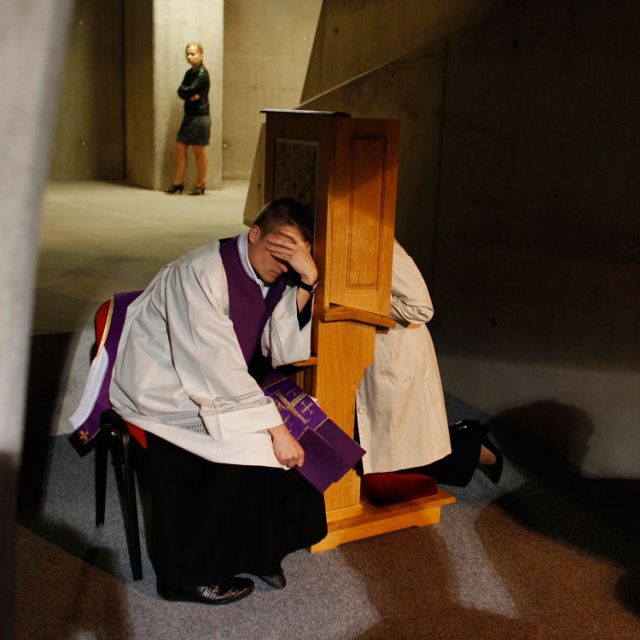Archbishop Rino Fisichella, president of the Pontifical Council for Promoting New Evangelization, said he does not care for the term "Francis effect," since Pope Francis has not changed church teaching.
But speaking to reporters May 15 about activities for the Year of Faith, he said that during an early May visit to southern Italy and in conversations with priests from northern Italy where he grew up, he repeatedly heard reports that "a lot of people have been going to confession and many have said that while they hadn't gone in a long time, they felt touched by the words of Pope Francis."
Archbishop Fisichella noted that requests for tickets to the weekly general audiences held by the Pope in St. Peter's Square have consistently numbered between 50,000 and 70,000, which is significantly higher than in the past. For the April 28 Mass his office organized with the Pope and young people receiving confirmation, some 70,000 people signed up in advance, but more than 100,000 showed up. The crowds were similarly large May 6 when, despite the rain, as many as 100,000 people came for the Pope's Mass with members of Catholic confraternities.
"People want to be present, listen to his voice and see him, touch him, because he makes a connection (with people) that is very moving," the archbishop said, adding that the Pope's popularity reflects the "importance of the faith, the importance of being Christian, and the importance of the Pope at this moment in the history of the church."
Bishop Jose Ruiz Arenas, secretary of the council, said that when he met with bishops and priests from Mexico and Colombia who were at the Vatican for a canonization Mass May 12, he heard "testimony that this phenomenon" of increased confessions is taking place everywhere.
"In Latin America, during Holy Week many people who hadn't confessed for many years" returned to the sacrament because of things they had heard Pope Francis say.
Officials of the new evangelization council spoke during a press briefing about Year of Faith activities with Pope Francis May 18-19 for members of lay movements and associations.
Movements and groups including Focolare, Communion and Liberation, the charismatic renewal, the Neocatechumenal Way, Shalom and the U.S.-based Fellowship of Catholic University Students are often on the front lines of new evangelization, Archbishop Fisichella said.
"Many young people, men and women in these church groups have not only rediscovered the faith they lost along the way or a faith that had become sterile and indifferent, but they have undergone a real conversion of their lives," he said.
The archbishop said the groups' strong identity, their consistency over time and their strong missionary bent often give them an advantage over parishes where the pastor changes every eight or nine years and the parish's pastoral outreach changes with him.
Bishop Ruiz said the key to the success of most of the movements is their focus on the Scriptures and on formation in small groups. He said the Latin American bishops, for several decades, have been promoting the same focus on small-groups Bible study and faith sharing in all their parishes, which has promoted new evangelization.


